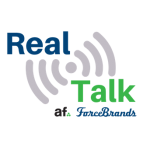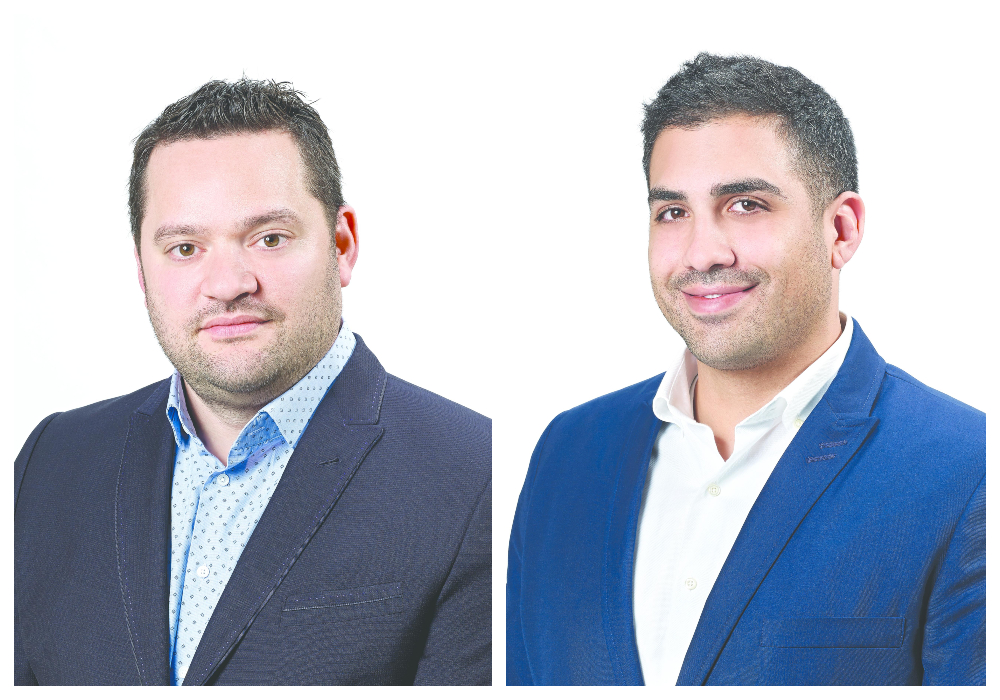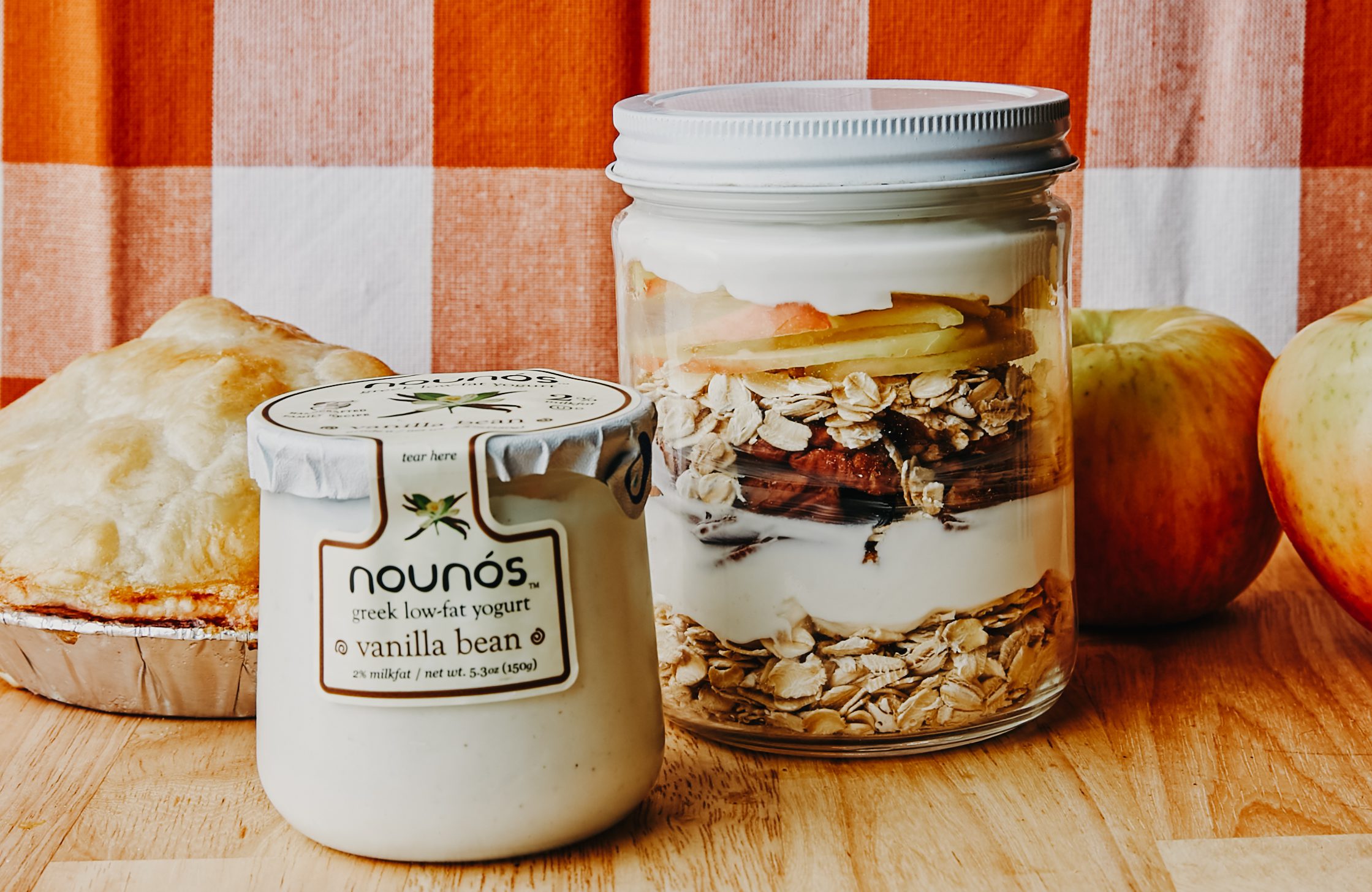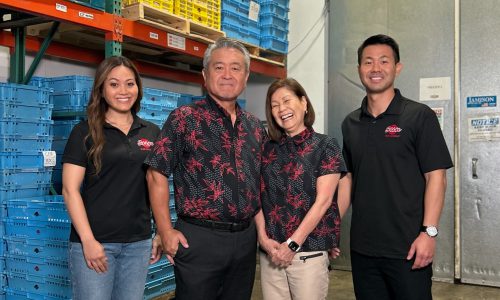 Real Talk is an ongoing, co-branded article series in partnership with AccelFoods that aims to highlight workplace and brand building topics that often go undiscussed. The goal of the series is to not only shed light on these topics but to ultimately open up the conversation and spark a meaningful dialogue about it with industry influencers and beyond.
Real Talk is an ongoing, co-branded article series in partnership with AccelFoods that aims to highlight workplace and brand building topics that often go undiscussed. The goal of the series is to not only shed light on these topics but to ultimately open up the conversation and spark a meaningful dialogue about it with industry influencers and beyond.
It’s all in the family for Steven Ioannou and his nounó (godfather) John Belesis, the creators of Nounós Creamery. What began as a passion project with a beloved family recipe to bring authentic Greek yogurt stateside, replicating the same processes and techniques, has quickly evolved into a fast-growing emerging brand that’s disrupting the premium yogurt space. As the first and only FDA-approved bag-strained Greek yogurt in the U.S., Nounós Creamery is poised to make more milestones with its vision to become the next big landmark dairy brand.
What does it take to bring this ambitious vision to life? And what exactly is the ‘family’ recipe for success? We caught up with Ioannou and Belesis to ‘real talk’ about the challenges they’ve overcome to bring Nounós Creamery to where it is today.
Q: It’s no secret that Nounós Creamery began with a beloved family recipe. Tell us more about its journey to the States and what inspired you to launch the product?
A: We grew up eating authentic Greek yogurt, and we obsessed with the way it was made in our little village; learning every aspect of its production. After years of this back and forth with recipes and techniques, we finally had enough knowledge to attempt replicating it here in the States. We are still improving our craft with every batch, and it’s important to know that it’s not a formula but an art that actually expresses our little Mediterranean village’s heritage.

Q: What were some of the earliest challenges and complications you encountered in launching and growing a family business?
A: We did everything the hard way, unlike most brands that utilize copackers; we never considered that as an option. We knew that for it to be authentic, we had to make it ourselves. Along with learning how to craft our yogurt we had to take a crash course in plant construction. We also decided that we wanted more control at the store level so we bypassed traditional distribution and purchased our own delivery trucks. It was very challenging to deal with 300+ store owners and their personalities, but it was a necessary evil that saved our business several times.
 Q: Nounós Creamery is unique in that it’s one of the first companies to expose the FDA to a new type of production. Tell us more about this and the obstacles you overcame to achieve this.
Q: Nounós Creamery is unique in that it’s one of the first companies to expose the FDA to a new type of production. Tell us more about this and the obstacles you overcame to achieve this.
A: This was one of the limiting factors in our expansion early on. New York state supported us the entire way and helped us work with the FDA in writing procedures to using cheesecloth in yogurt making. We showed our inspectors how this process is being used in Greece and how it’s scalable. With over two years of back and forth with various departments of the government, we achieved it. We are very proud to say that we paved the way and became the first FDA-certified yogurt plant in the U.S. to use our families’ traditional straining technique.
Q: When it comes to team building, you both don’t have backgrounds in the food industry. How did you approach those initial key hires and distribute and delegate tasks?
A: As you may know, most Greeks are born into the food industry, and John and I are no exception to that. Both our families owned restaurants in New York so we were always around food.
Right before we started Nounós, I was managing a supermarket so I had experience in recruiting, training, and motivating staff. John had more experience in structured corporate environments, and process automation, so together we made a good combo.
We stretched our resources as far as we could because they were very limited. Our first hires were actually friends and family. We worked every aspect of the business (driving trucks, filling yogurt, calling for orders to collection calls). This was great for us because we learned the ins and outs of our business. Once we mastered a particular position and knew it like the back of our hand, we would delegate it to a hire and focus on the next problem.
We continue to employ this strategy by simply telling our employees to write down all their repetitive tasks. We then collectively decide to either hand it off to a new hire or automate via software or some other solution.
Q: Your Chief of Production is in the family; what was the decision-making behind this?
A: To be honest, we didn’t expect the brand to take off as it did. The family saw how we were hustling so they stepped in to help from the very beginning. My mom was on the line packing cases and John’s dad was making the yogurt for the first three months, and after he would ride in the truck with me while I made deliverers. My uncle Louie came in at the right time and initially helped with deliveries but then slowly moved to production as we felt the plant required trustworthy supervision while we were gone.
Q: Where do you go to source key talent? What qualities do you look for that align with the family values that built the company?
A: After 2-3 years of rapid growth, John and I decided it was time to surround ourselves with experts, so we started working with part-time consultants. But as we continued to grow, we carefully replaced some of these roles with full time hires. We typically like to hire from within the company or via recommendations from industry connections. But if we have a very pressing need, then we use industry experts like ForceBrands.
Communication and being open and social is key to all Greek families. We try to incorporate this every day at work.
We look for people who not only do their job well, but also help others do their jobs well. They need to be positive, kind, flexible, resourceful, and they need to have a sense of humor. Both John and I are goofy guys and we want it to be fun!
Q: How do you maintain these values through periods of rapid growth? Are there any secrets to maintaining a cohesive culture without compromising the integrity of the brand?
A: No matter how big our company gets, it’s important for us not to lose touch with our roots and the people that helped us scale this into a business in the first place.
Nothing brings a family together like a good cooked meal. John’s dad cooks full course meals for the entire plant whenever he is around and we all sit around eating and talking to each other as we do at family outings. It’s a great way to learn more about your team and learn what makes everyone tick. As our company grows, our kitchen has to grow along with it. We are already making plans to build a new expanded kitchen which will include a BBQ picnic area in our next expansion.
Q: Knowing what you know now about what it takes to build a family-founded company, what important lessons would you give to others who are considering starting a family business?
A: DON’T DO IT! No, just kidding! Hiring family members worked for us because we were able to fill key positions fast knowing that they already had the drive to help us. These are people we grew up with, who we trusted, and ultimately who wanted us to succeed.
It’s important that family members learn to keep their personal feelings out of decisions and put the business first during working hours. It’s a challenge to include family in your work but it was well worth it for us.
Read more Real Talk stories here. Interested in working in the dynamic food industry? Explore our FoodForce division.






